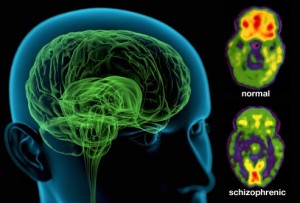In 2012, scientists in Japan announced that they had created mind altering devices that could change a person’s perception of reality. The devices were in the form of goggles and also headgear. The equipment was suggested to be helpful for people trying to lose weight in that food could be visually enhanced to look larger or smaller.
In studies using the equipment, people who saw food items as larger than they really were, would be more likely to eat less of the item. One of the other devices was able to add a scent to the food through a scent bottle, and this bottle gave off a scent of something people thought they were eating. People eating plain biscuits actually thought they were eating delicious strawberry or chocolate cookies due to the perception altering equipment.
Could this technology be used in the medical field?
Using this same type of equipment, it would stand to reason that professionals working with people diagnosed with schizophrenia could benefit from this technology to show others what a person with schizophrenia experiences. Schizophrenia is a mind altering chronic, oppressive and disabling brain disorder. Symptoms of schizophrenia include visual and auditory hallucinations, distorted thoughts, and severe paranoia which causes them to assume people are controlling their thoughts are planning to hurt them.

If the professionals that created the above described mind altering devices could somehow create new appliances that would mimic the symptoms of schizophrenia, it would be extremely helpful to professionals working with schizophrenic patients or clients.
If these devices could alter the visual appearance of food, then it stands to reason that they should also be able to create equipment that would provide hallucinations, both verbal and auditory that would make users feel they were hearing and seeing things that are not really in the room with them. This would give them great insight and empathy to help their schizophrenic patients and clients.
Effective technology for mental health professionals
This equipment could be used in colleges and universities across the country and could be mandatory for people taking classes in the mental health field. To reach professionals that are already working in the field and already have their degrees, the equipment could be rented to agencies who provide ongoing training to their mental health professionals.
Examples of these types of agencies are again hospitals, but also social service agencies both on the private and non-profit spectrum.
When professionals such as psychiatrists, social workers and counselors are in school to earn their degree, they are often told it is best to, “start where the client is at.” In terms of the disease of schizophrenia, the symptoms are so unusual, that it would be hard for a counselor working with people with this disease to understand where the client is actually at.
Most people don’t have visual hallucinations, hear voices, or experience the paranoia these symptoms can cause. Equipment that could replicate these symptoms would be most beneficial for professionals working with schizophrenic clients to help better understand their world and how real these symptoms are to their clients.

